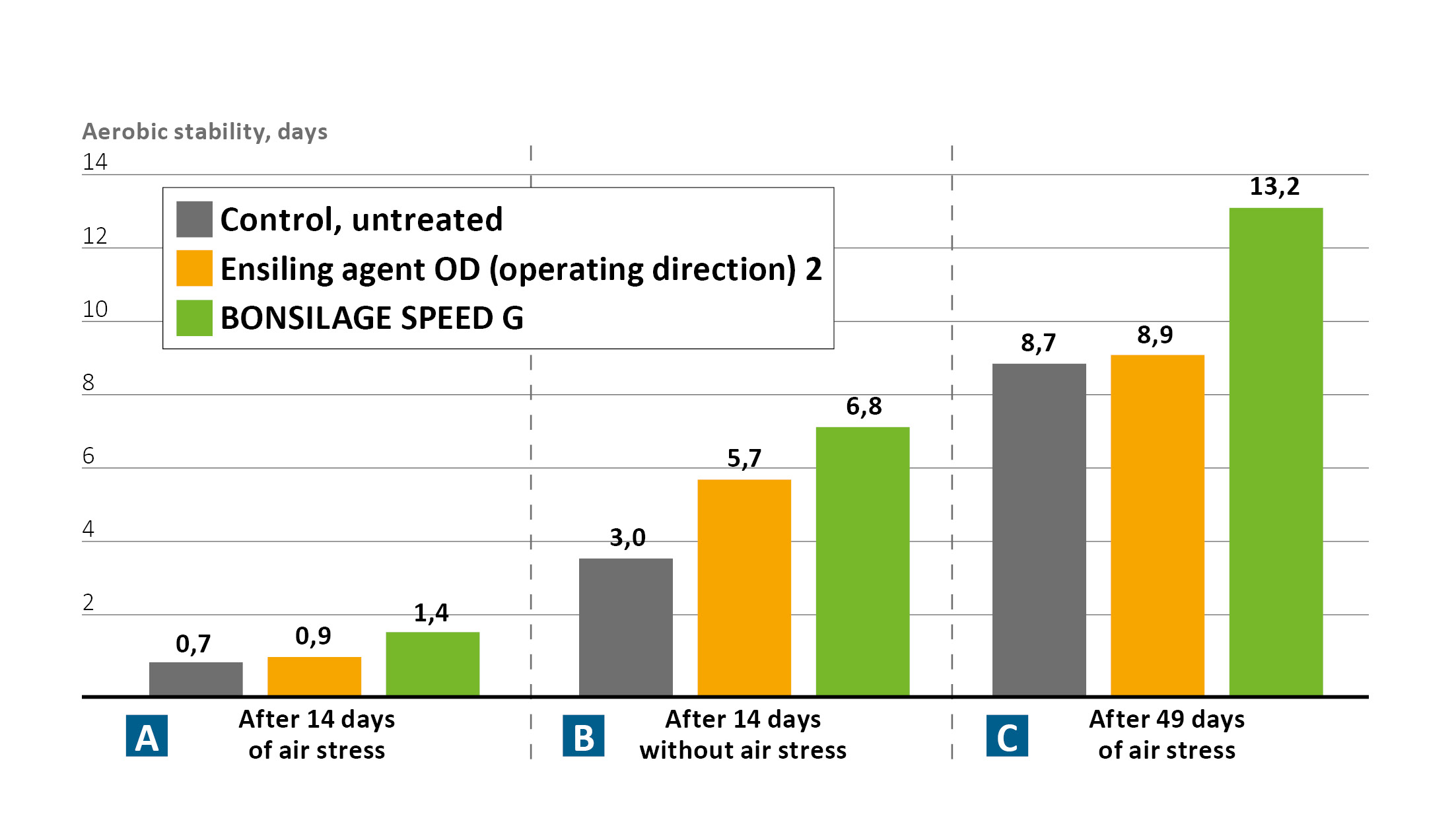
Reconfirmed: BONSILAGE SPEED G ensiles measurably faster
01.04.2020
New test results from the Bavarian State Institute for Agriculture (LfL) - Animal Nutrition in Grub confirm the fast effect of BONSILAGE SPEED G. Compared with other silage additives and in different storage time variants, the biological silage additive from SCHAUMANN has proven to be very effective.
In the LfL trial, the 2nd cut in 2019 (33.5 % DM; 30 % XF in DM) was ensiled in laboratory silos. An untreated control and two silage additive variants were tested in the "preserving jar" in accordance to DLG specifications in order to determine the effects over time:
Variant I: Ensiling agent with DLG quality mark of the working direction (WR) 2 to improve aerobic stability;
Variant II: BONSILAGE SPEED G. Furthermore, different storage time variants as well as different stress levels during storage were simulated:
A: 14 days storage without air stress
B: 14 days storage with air stress after 7 days storage for 24 h
C: 49 days of storage with air stress after 28 and 42 days of storage for 24 h each
The result: While the untreated control always has the lowest aerobic stability, that of the silage additive variant I (DLG- WR 2) is in the middle range. BONSILAGE SPEED G was able to improve the stability after opening in all three storage variants A, B and C, even after a short silo ripening period (see Fig. 1).
In order to also test the influence on mould formation, an optical mould assessment was carried out on the silages. For this purpose, the samples were ensiled for 49 days and then stored for 13 days under the permanent influence of air. While both the untreated silage and the silage treated with silage additive variant I (DLG- WR2) showed more than 50% mould, the BONSLAGE SPEED G samples all showed no signs of mould formation!
Once again, test results show what many practical operators already know: BONSILAGE SPEED G, with its lactic acid bacterial strain Lactobacillus diolivorans, ensures a rapid aerobic stability and provides more flexibility in feed planning. Figure 1: Aerobic stability after 14 and 49 days of ensiling, with and without air stress during storage (LfL - animal nutrition, pit, 2nd section 2019)
